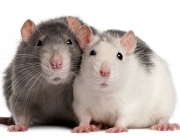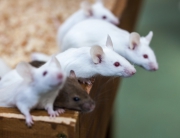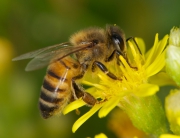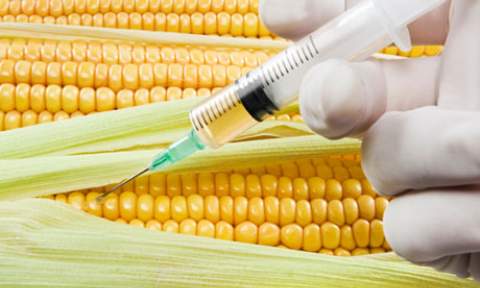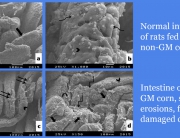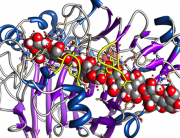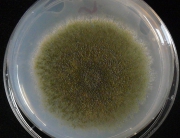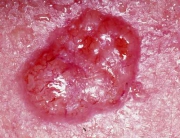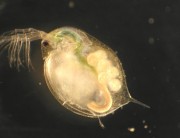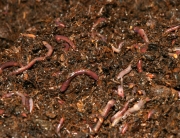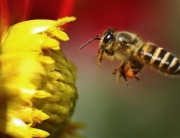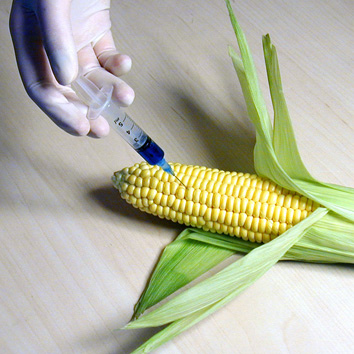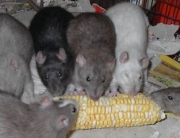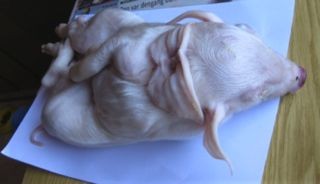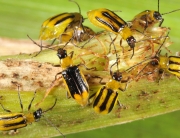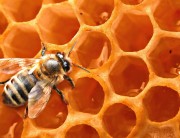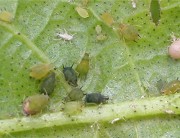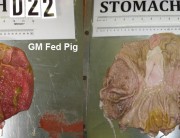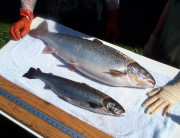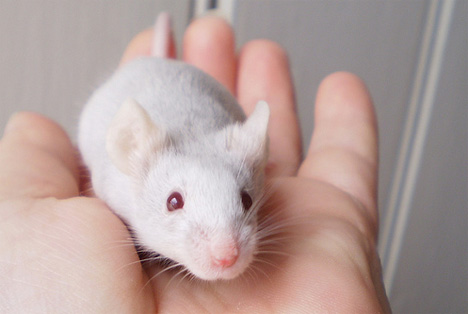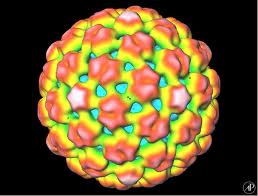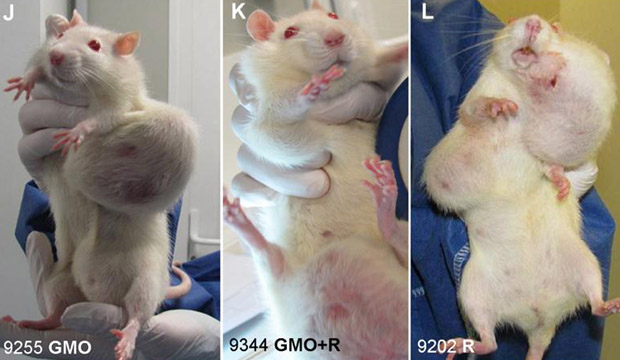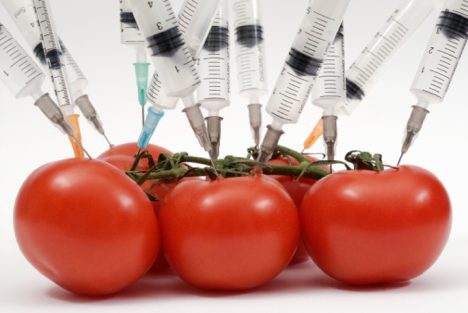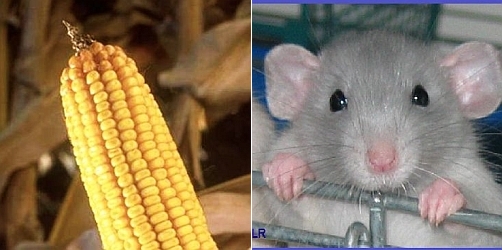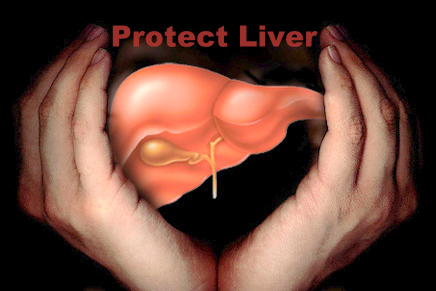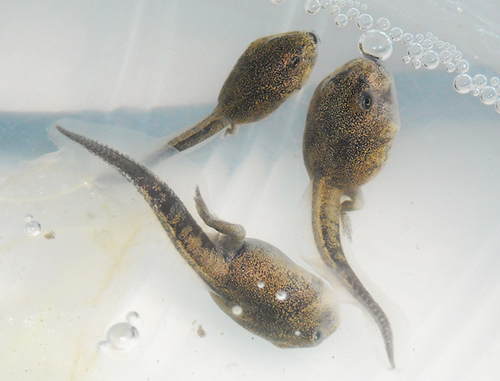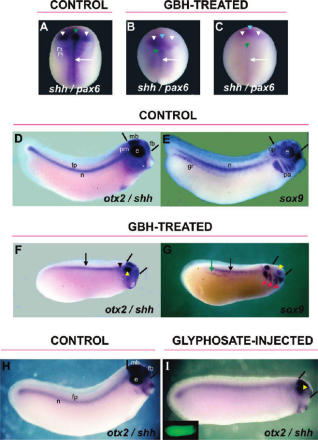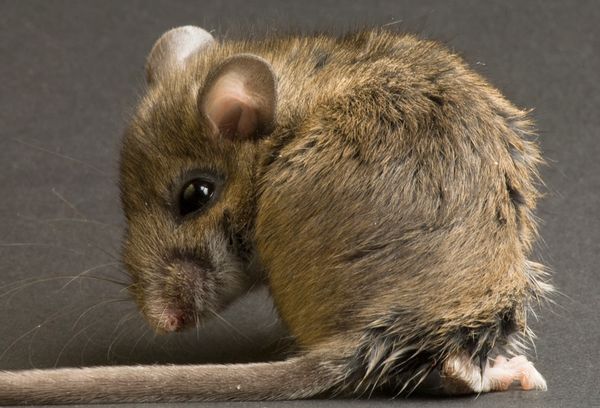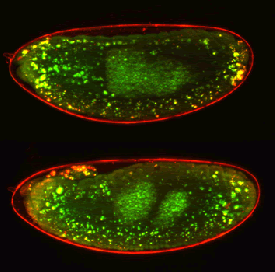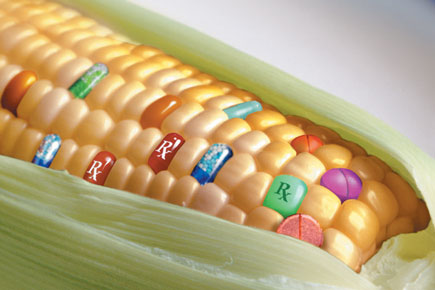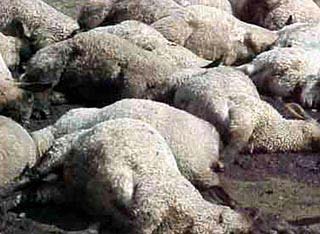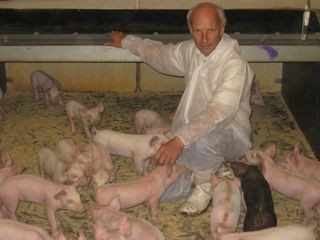This Università degli Studi di Perugia study in Italy showed disturbances in the functioning of the digestive system of ewes and in the liver and pancreas of their lambs after feeding them GM Maize.
Source: www.diatheva.it
Abstract
This study shows that a diet including insect-resistant Bt176 maize, fed to 53 ewes and their progeny for 3 years, did not have
adverse effects on their health or performance and that no horizontal gene transfer to ruminal microorganisms or animal tissues was
detected. No differences were observed regarding performance, reproductive traits, haematological parameters, antioxidant
defences, lymphocyte proliferative capacity, phagocytosis and intracellular killing of macrophages, and ruminal microbial
population characteristics between control and genetically modified (GM) maize-fed animals. Immune response to Salmonella
abortus ovis vaccination was more efficient in GM maize fed sheep. No modifications of histological features of tissues were
found; however, cytochemical analyses of ruminal epithelium by Ki67 staining provided evidence of proliferative activation of
basal cells in all GM maize-fed ewes. Preliminary electron microscopy analyses of the liver and pancreas revealed smaller cell
nuclei containing increased amounts of heterochromatin and perichromatin granules in GM maize-fed lambs. Meat protein content
and water loss by cooking were slightly affected by the dietary treatment. No transgenic DNA was detected in tissues, blood, and
ruminal fluid or ruminal bacteria. Longitudinal studies should be included in evaluation of food safety whenever possible and sheep
may be a useful animal model for toxicological assessment.
Authors
Massimo Trabalza-Marinucci, Giorgio Brandi, Cristina Rondini, Luca Avellini, Camilla Giammarini, Silva Costarelli, Gabriele Acuti, Chiara Orlandi, Giovanni Filippini, Elisabetta Chiaradia, Manuela Malatesta, Silvia Crotti, Chiara Antonini, Giulia Amagliani, Elisabetta Manuali, Anna Rita Mastrogiacomo, Livia Moscati, Mohamed Naceur Haouet, Alberto Gaiti, Mauro Magnani





